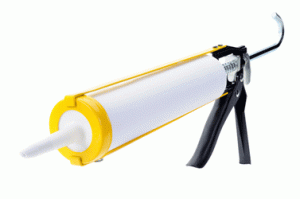 Your home’s envelope is meant to keep the weather out and help keep you warm in winter and cool in summer. Air leaks are a common problem, however, and they can cost you in terms of higher bills and lowered comfort. Here is more information about this and what you can do.
Your home’s envelope is meant to keep the weather out and help keep you warm in winter and cool in summer. Air leaks are a common problem, however, and they can cost you in terms of higher bills and lowered comfort. Here is more information about this and what you can do.
Determining Leak Sources
Inspect all areas of your home. Some leaks will be very obvious, but many might be difficult to detect. Don’t let this fool you, however. Small leaks add up to big energy loss. To make it easier to detect the less-obvious sources, bring a damp cloth with you to wet your hand. As you pass your hand near suspected areas of leakage, any draft will be easier to detect. Look for air leaks first in the following places:
- Beneath baseboards
- Switch plates and electrical outlets
- Exterior door frames
- Window frames
- Attic entrances
- Entrances for wiring, cables and plumbing
- Recessed lights and skylights
You should check the exterior of the home, as well. Foundation cracks or gaps around storm windows are also possible sources. If you’d like help detecting air leaks, you can request an energy evaluation, which will include thermal imaging and other tests.
The Importance of Sealing Leaks
Through every gap in the envelope, air can pass into your home or leave your home. This adds to your HVAC system’s workload , decreases indoor air quality and increases your monthly utility payments.
Sealing leaks is usually not difficult. Most will require caulking, weather-stripping, or expandable spray foam. Attic entrances are usually sealed by covering them on the attic side with a pad of insulation that is slightly larger than the entrance itself.
When using caulk to fill leaks, including any around the stationary parts of windows or doors, take your time. A good caulking job takes a steady hand in order to make sure the crack is completely filled with the caulk.
Remember to use only fire-retardant materials around features such as flues.
For more information about sealing air leaks, please contact us at Hansberger Refrigeration and Electric Company.
Our goal is to help educate our customers in Yuma, Arizona about energy and home comfort issues (specific to HVAC systems). For more information about other HVAC topics, download our free Home Comfort Guide or call us at 928-723-3183.
Credit/Copyright Attribution: “Norman Pogson/Shutterstock”

